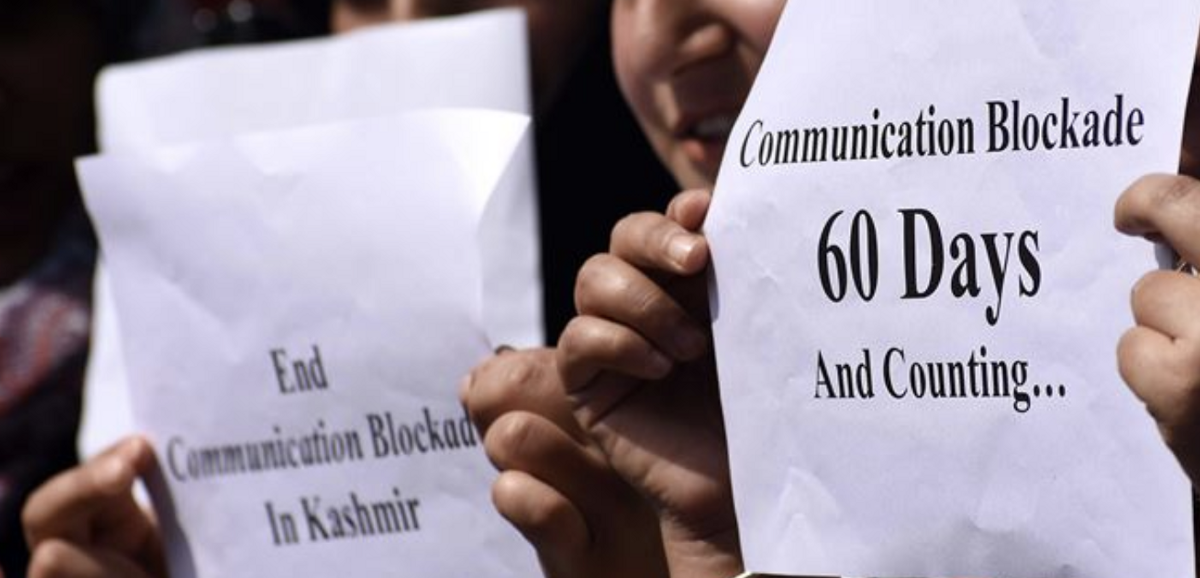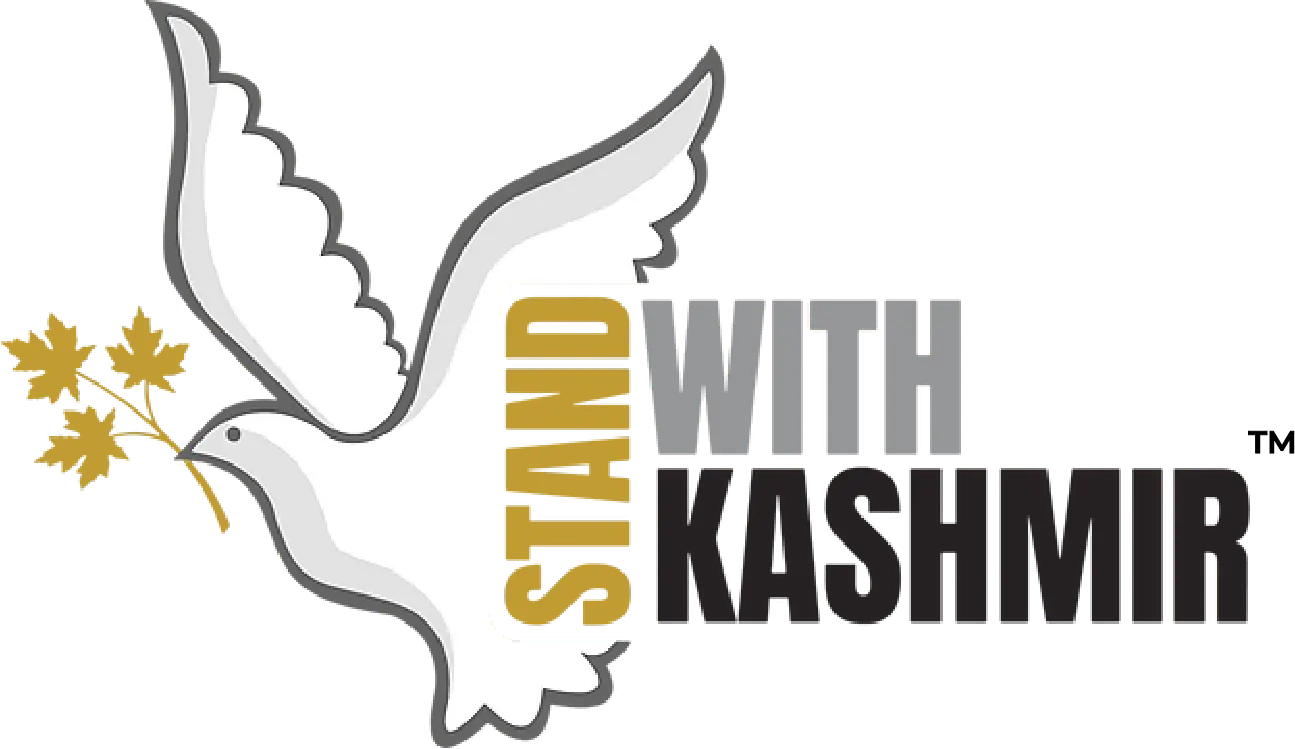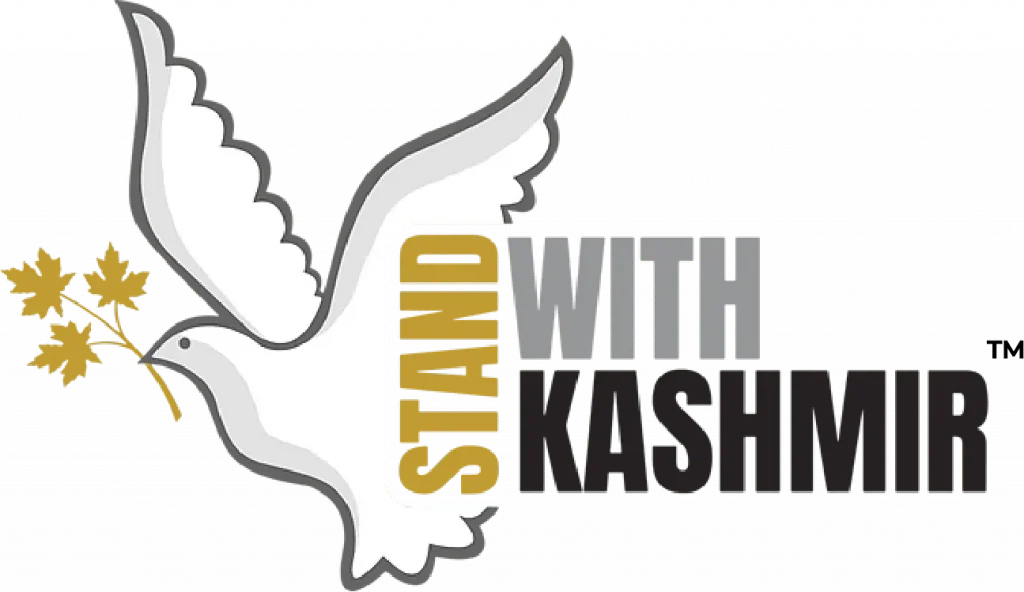Here’s what it is like to be a journalist in Kashmir today

No phones. No internet. Hundreds of check points. No questions allowed. No answers given.
Journalists in Indian-occupied Kashmir recently held a silent protest in Srinagar calling for an end to the communication blockade.
One female journalist spoke to Stand With Kashmir about the immense challenges of reporting on the crisis that began on August 4.
I Have been a journalist in Kashmir for the past seven years. I have seen shutdowns, curfews and protests.
This has easily been the most difficult time for me.
This is the digital age but we don’t have phones or the internet making it incredibly hard to work as a journalist.
In fact, the last time my phone rang was on August 4.
Imagine that.
Days after the communication blockade was imposed, the government opened a “media facilitation center”.
It had two computers to cater to the needs of more than 200 local Kashmiri journalists and dozens of journalists from mainland India who had come to cover the situation; foreign journalists are currently not allowed to report from Kashmir.
Two months later, there are now nine computers and even more journalists.
I have to travel six kilometers from my home to the media center where the police and security forces are everywhere.
I have to enter my name when I enter, my time or arrival and departure.
Literally the government knows my every move: when I arrive, how long I stay, and how often I come. They also probably know what I am doing.
We cannot access the wifi or use or own computers to connect to the internet. We have to each log-on to their computer.
So it is either we take the risk and do it or remain silent.
Between the two, we choose to tell the story knowing that our privacy might be compromised.
It is humiliating to wait for your turn to access the internet for a maximum of 15 minutes each.
We are completely dependent on government for sending a mail or making a call from the designated phone.
To use the mobile phone at the center, we have to write down our names, the name of our organization and the number we have to call. We have no more than two minutes to talk.
I mostly hesitate to call from the facility which means I often cannot complete my stories on time.
We fear they might also be recording our conversations, but again we have no other option. Eventually we all have to make that call.
I don’t know what to call it. But it’s a different type of war.
The army presence is overwhelming in all parts of Kashmir as thousands of additional troops came to the region after August 5.
Scores of new permanent security bunkers have been set up and there are so many checkpoints. This place has transformed.
It is hard as a journalist to move freely and it is not safe to be a journalist.
You’re actually more at risk.
In the evening it is very difficult to go out. The troops do not respect the movement pass or even your identity card.
We are also scared to venture out far from the city; if something happens, no one will know. It is too much of a risk.
We also find it difficult to access information about deaths or arrests or protests.
Everything is based on a human messenger.
Localities are cut off, districts are cut off and we are cut off from the outside world. We are unsure about what is happening in the next locality or district.
To be honest. we are actually yet to tell people’s stories, which makes me really sad.
There is so much fear that local journalists have completely been silenced through direct or indirect intimidation.
Also, Kashmiri journalists are treated differently to Indian journalists. We don’t dare take out our cameras on the street. It is way too risky.
Officials don’t answer our questions either. We have to deal with press releases. And we dare not complain about anything, because they can take away the little we have, too.
Sometimes it feels I will not be able to work anymore, because I am dependent on the government for very small things.
As a journalist, it is very frustrating. I am very depressed to be honest. It is exhausting. They want us to submit and give up.
Editor’s note:
If you want to act. Write to the following organizations to register your complaint about the horrific conditions in which journalists are operating in Kashmir.
©2025 StandWithKashmir All rights reserved. SWK is a 501(c)(3) non-for-profit organization.


Leave a Reply